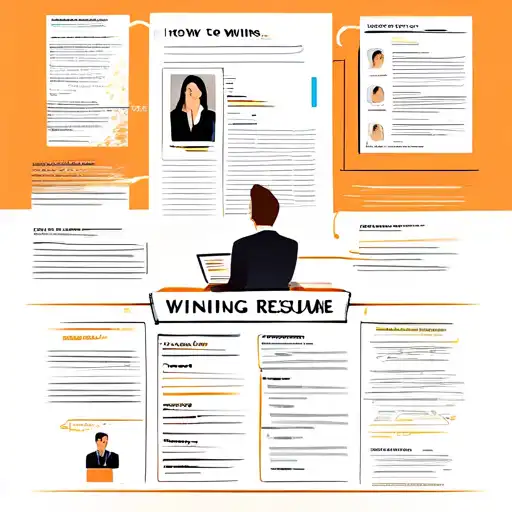Introduction
In today's competitive job market, having a winning resume is more important than ever. It's your first impression on potential employers, and it needs to stand out. This guide will walk you through the steps to craft a resume that not only highlights your skills and experiences but also catches the eye of hiring managers.
Understanding the Basics
Before diving into writing, it's crucial to understand what makes a resume effective. A good resume is concise, tailored to the job you're applying for, and free of errors. It should clearly communicate your value proposition to the employer.
Key Components of a Resume
- Contact Information: Make sure your name, phone number, email, and LinkedIn profile are up-to-date.
- Professional Summary: A brief statement that highlights your experience and skills.
- Work Experience: List your previous jobs, focusing on achievements rather than duties.
- Education: Include your degrees and any relevant certifications.
- Skills: Highlight skills that are relevant to the job you're applying for.
Tailoring Your Resume
One size does not fit all when it comes to resumes. Tailoring your resume for each job application increases your chances of getting noticed. Use keywords from the job description and align your skills and experiences with the job requirements.
How to Customize Your Resume
- Analyze the job description to identify key requirements.
- Adjust your professional summary to reflect the job's needs.
- Highlight relevant experiences and skills.
- Use similar language and terminology as the job posting.
Design and Formatting Tips
A well-designed resume is easy to read and professional. Stick to a clean layout with consistent formatting. Use bullet points for readability and avoid overly creative designs unless you're in a creative field.
Best Practices for Resume Design
- Use a professional font like Arial or Times New Roman.
- Keep the font size between 10 and 12 points.
- Use white space effectively to avoid clutter.
- Save your resume as a PDF to preserve formatting.
Proofreading and Feedback
Before sending your resume, proofread it multiple times to catch any typos or grammatical errors. It's also helpful to get feedback from mentors or peers in your industry.
Final Checklist
- Check for spelling and grammar mistakes.
- Ensure all contact information is correct.
- Verify that your resume is tailored to the job.
- Confirm the design is clean and professional.
Conclusion
Crafting a winning resume takes time and effort, but it's worth it. By following these steps, you can create a resume that stands out and moves you closer to your dream job. Remember, your resume is a living document—keep it updated as you gain new skills and experiences.
For more career advice, check out our career tips section.
